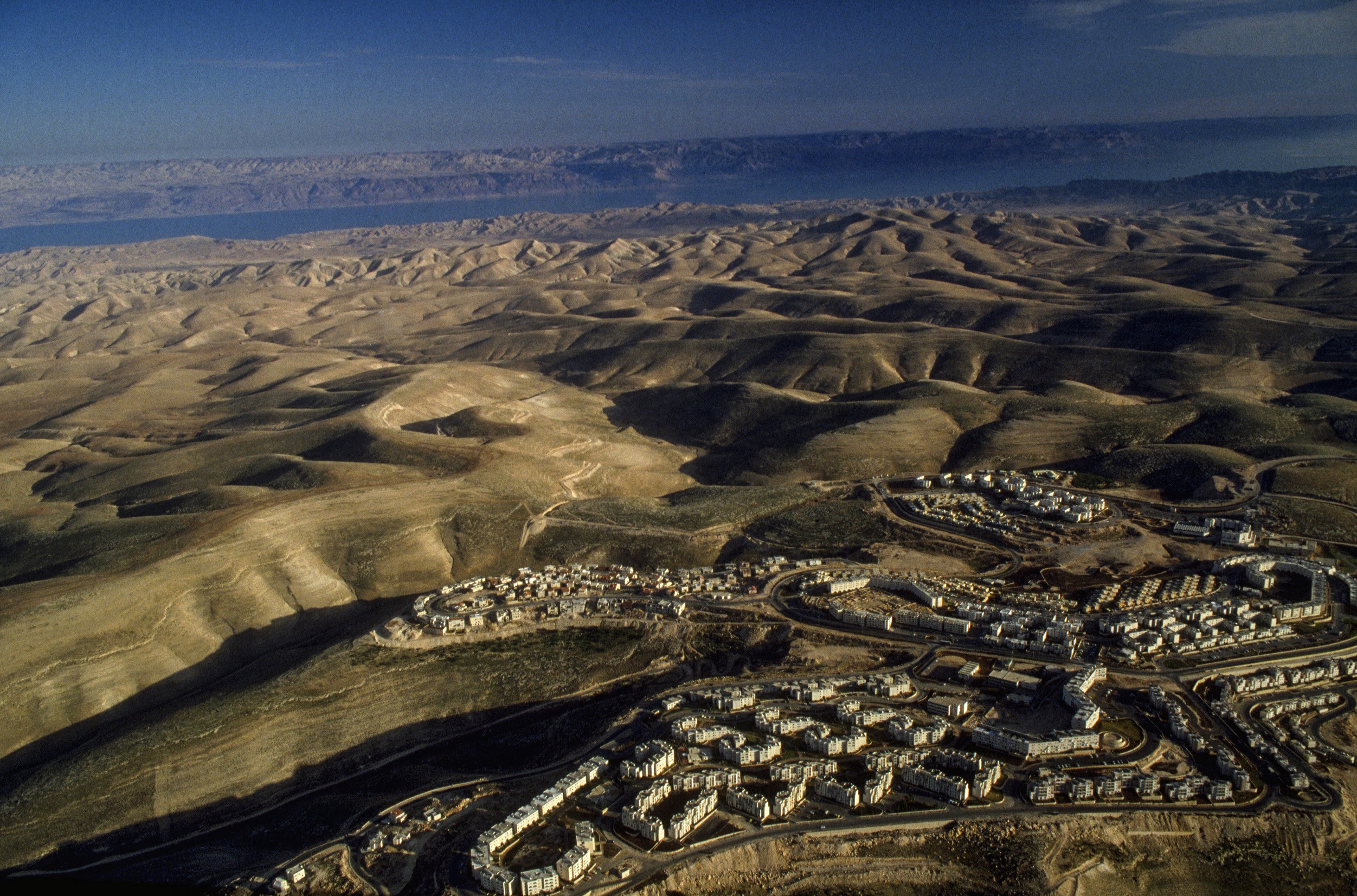Congress is sneakily trying to rewrite American policy on Israeli settlements. It must be stopped.
Otherwise, so long two-state solution!


A free daily email with the biggest news stories of the day – and the best features from TheWeek.com
You are now subscribed
Your newsletter sign-up was successful
For as long as Israel has been building settlements in the occupied Palestinian territories, the U.S. has expressed unequivocal opposition to them.
The Johnson White House called settlements "contrary to the Geneva Conventions." Former Secretary of State James Baker said they "violate United States policy." Former President George W. Bush demanded "settlement activity in occupied territories must stop." And the Obama Administration has said repeatedly that settlements are "illegitimate." The fact that American opprobrium hasn't slowed Israel's land grab — that, indeed, the U.S. government has tacitly encouraged settlement expansion by failing to exact a diplomatic price for its continuation — doesn't change the policy.
Now, however, a single clause in a bill that's passed the House and is expected to pass the Senate could be a tangible step toward the change that Israel seeks. Buried in H.R. 644 (known as the Customs Bill) is the following phrase:
The Week
Escape your echo chamber. Get the facts behind the news, plus analysis from multiple perspectives.

Sign up for The Week's Free Newsletters
From our morning news briefing to a weekly Good News Newsletter, get the best of The Week delivered directly to your inbox.
From our morning news briefing to a weekly Good News Newsletter, get the best of The Week delivered directly to your inbox.
[Congress] supports efforts to prevent investigations or prosecutions by governments or international organizations of United States persons on the sole basis of such persons doing business with Israel, with Israeli entities, or in Israeli-controlled territories. [H.R. 644, emphasis mine]
Before now, America (along with the global community) has drawn a line between internationally recognized Israel and the occupied Palestinian territories. This is why the U.S. embassy isn't in Jerusalem: More than half of Israel's capital sits on annexed West Bank land claimed by Palestinians as their own capital. This is why — just last week — the U.S. Customs office issued a statement reiterating that settlement-produced goods may not be marked as "Made in Israel" — and that furthermore, "Goods that are erroneously marked as products of Israel will be subject to an enforcement action."
Forty-nine years of policy aside, however, members of Congress have long taken it upon themselves to use the Israeli-Palestinian conflict as a political tool, currying favor among certain voters and funders. Congress' Customs Bill is a natural continuation of this pattern of cynical disregard for either the demands of peace or the reality on the ground.
Intended as a sop to those who oppose the international movement which calls for boycott, divestment, and sanctions (BDS) against Israel to protest the occupation, the words "or in Israeli-controlled territories" manage not only to erase the international border that exists between the sovereign state of Israel and Palestinian lands, but also to build common cause with the very boycotters at whom Congress hopes to thumb its nose.
The BDS movement has no central headquarters, no single leader or spokesman, and is supported by many different people, some of whom seek peace and justice and others of whom seek the eventual erasure of Israel from the map. As an American-Israeli, I don't support BDS for a variety of reasons, but have personally boycotted the settlements and settlement goods since the late 1980s.
A free daily email with the biggest news stories of the day – and the best features from TheWeek.com
Settlements are what stand — both metaphorically and literally — between Israel and a workable, durable two-state solution. In this, they are filling their intended role. After a lifetime of advocating for the peaceful establishment of a viable Palestinian state alongside a secure Israel, I cannot in good conscience give my money to the very people whose goal is to prevent that from ever happening.
One of the primary reasons that I don't support the much broader BDS movement, however, is that it fails to differentiate between that which is legally Israel and that which is not. Israeli academics from Tel Aviv are blacklisted alongside those who made the political decision to live on militarily-occupied land; goods produced in Haifa are rejected alongside those made in any of the roughly 1,000 settlement factories spread across the West Bank.
The U.S. is right to support its allies' industry and oppose boycotts of its allies' legal activities (the word "ally" loses much of its meaning, otherwise) — but the "Israeli-controlled territories" so quietly slipped into this piece of legislation refers not to the state of Israel, but to activities carried out in violation of international law across Israel's border, under military occupation.
The much maligned and long-denied two-state solution is also official American policy — successive administrations have spent millions of dollars and probably millions of hours attempting to facilitate a resolution of the conflict that will allow each side to live in peace and dignity in its own sovereign state. The settlements — more than 200 of them, scattered across a slice of territory that’s smaller than Delaware, connected by roads that only Israelis may use, and secured by the Middle East’s most powerful military — are a literal and quite physical impediment to the possibility of achieving anything remotely like a two-state solution.
So now our senators must decide: Do they support the foreign policy and goals of the nation they serve, or do they seek to give a stamp of approval to illegal activity which will render those policies and goals impossible to achieve, for their own domestic political gain? I call on them to do the former.
But perhaps I'm naïve. After all, if the U.S. had ever been serious about opposing the Israeli occupation or its settlements, we probably wouldn't be having this discussion in the first place.
Emily L. Hauser is a long-time commentary writer. Her work has appeared in a variety of outlets, including The Daily Beast, Haaretz, The Forward, Chicago Tribune, and The Dallas Morning News, where she has looked at a wide range of topics, from helmet laws to forgetfulness to the Israeli-Palestinian conflict.
